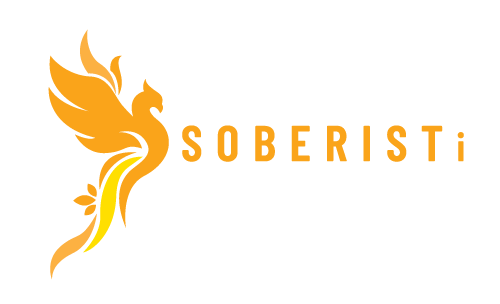The Easy and Joyful method I developed works and frees women from alcohol addiction, but some people find it scary and dangerous. If you haven’t sobered up using, say, the 12-step method, then, according to them, you’ve sobered up wrong.

WHEN I freed myself from alcohol addiction five years ago and immediately started writing a book about my experiences, there was skepticism in Finnish addiction treatment circles: how could I write a book at that stage? They were sure I would relapse. It wouldn’t work.
IN reality, there was never any risk of backsliding. I rejoiced in the freedom and well-being that sobriety brought—and I constantly nurtured that joy. At no point was I afraid of relapse, and when you’re fearless, there is no risk.
BECAUSE I wrote Free from Wine at the start of my sobriety process, the enthusiasm and joy I felt for my new life without alcohol shines through to readers. That’s probably why so many have found it empowering for their own journey to sobriety.
SO far, Soberist, which I launched this year, and its Easy and Joyful online coaching, has worked for everyone.
This should be something to celebrate, but for some reason, some people find it scary and wrong.
YEASTERDAY, a well-known individual, whom I had previously regarded as a broad-minded and reasonable man, approached me. He rejected and outright condemned the sobriety method I developed: “I find your ideas about sobriety really scary. Alcoholism is a disease that defines life forever. Your method, in a way, denies the shameful side of it, and that only reinforces the stigma.”
I replied that, yes, you can be an alcoholic (or alcohol addict) if alcohol still defines your life. But once it no longer does, and when there is no desire to drink, you are free, sober—a soberist. I believe everyone should define their own path, and if someone chooses to place themselves in a restrictive box, that’s their choice. But if you don’t want to, you don’t have to.
MY mission is specifically to dismantle the shame that women, in particular, feel about their alcohol addiction. I aim to break the taboo, making it easier to seek help and get sober before the problem becomes unmanageable.
I AM always open to discussing different views with an open mind. There is no one right way to get sober. But in this case, it quickly became clear that the person did not actually want to engage in a conversation, but rather to silence me.
I HAD already been warned that some might come out strongly against me. Advocates of a single recovery path can be found at all levels of society, and they may not take kindly to anyone who speaks of spontaneous, unsupported sobriety.
For example, in AA and in 12-step programs in general, self-reliance is often seen as arrogant and even dangerous.
THIS is understandable when you know AA’s history: it was a method developed by an upper-class American white man, stockbroker Bill Wilson, in the 1930s, specifically for upper-class white men. Women had no place in AA meetings, and if a woman used alcohol, she was seen as a complete failure, not even truly a woman.
AA was a creation of the oppressive group for its own kind: men afflicted by egotistical self-will, who thought themselves to be gods. Wilson discovered that to overcome their alcohol addiction, they needed to humble themselves before God. An overwhelming ego had to be subdued in order to heal.
AA worked for men, but it didn’t work for everyone.
AA’s teachings remain the same as they were when it was founded more than eight decades ago.
Few, if any, women, then or today, imagine themselves to be gods. There is no pedestal for women to fall from.
WHAT a woman with an alcohol problem needs is not more humility and intimidation, but gentleness, self-compassion, and love. A recovering woman must learn to put her own needs before others and set boundaries—gently but firmly.
YOU have to learn healthy selfishness, which ultimately benefits those around you. Even on an airplane, they tell you to put on your own oxygen mask first before helping others. If you don’t take care of your own well-being, you won’t be able to care for others in the long run.
I never would have gotten sober if I had been required to attend groups and live in constant fear of relapse. Nor would I have succeeded if I believed that I was an alcoholic and sick for the rest of my life, forever carrying the stigma of alcoholism, even after 40 years of sobriety.
After all, a former smoker isn’t called a “dry smoker.” They’re a non-smoker.
So, I am sober—a soberist—now that I’m free from alcohol.
UNLIKE some recovery methods, the approach I’ve developed is based on both research and personal experience. It also takes into account the diversity of people: not everyone is motivated by the same things.
THERE are plenty of people for whom AA works, for example, but there are also many for whom it doesn’t. Soberist is aimed at women who don’t resonate with AA’s message and who don’t find help in traditional addiction treatments. These are mentally strong, self-directed individuals who are motivated by freedom and joy and prefer to work independently rather than in a group setting.
AA works particularly well for those who prioritize the support and stability that a group provides. People with this need for stability are often the most resistant to change, so it’s understandable that a completely new and modern approach, like Soberist, might feel frightening and provoke a strong reaction.
IN Finland, we have a large number of people who need help with addiction. I wish we could let all the flowers bloom and allow people to define their own space. Let’s welcome all who wish to help into the addiction treatment field.
This would also allow for more joyful, spontaneous recoveries.
FINALLY, I would like to see more collaboration in the Finnish addiction treatment field rather than jealous competition for “clients,” i.e., people in need of help.
There can never be too much help.
Ira Koivu
Founder of Soberist


